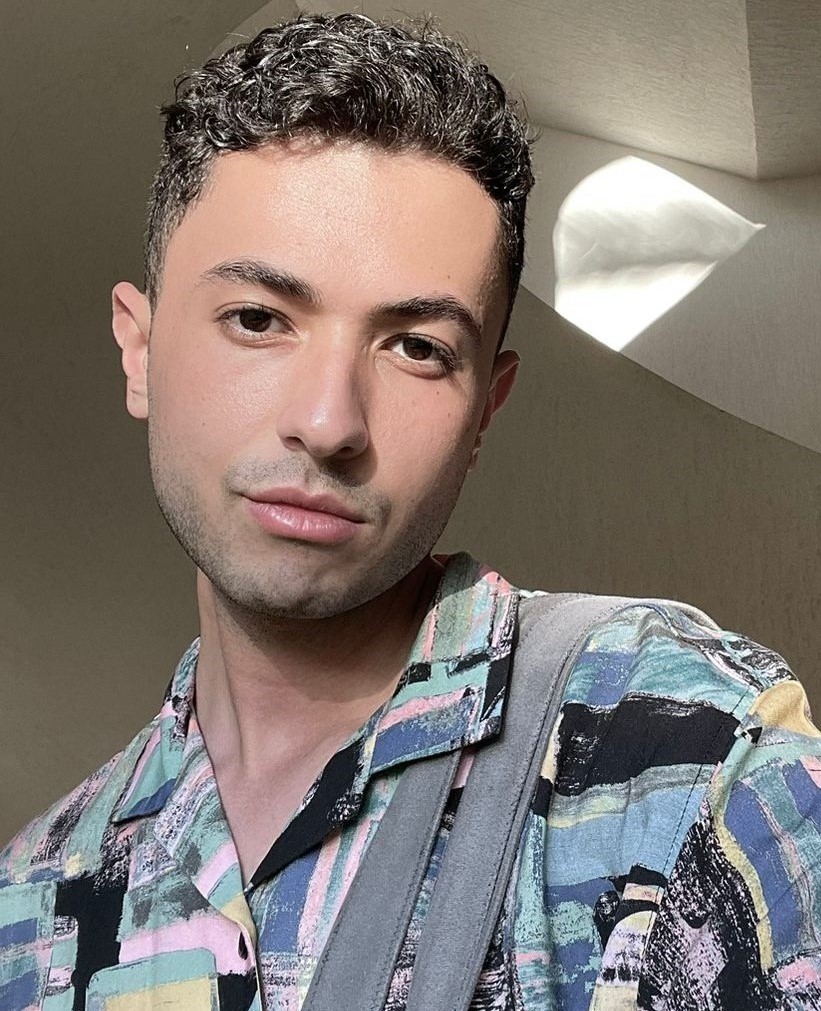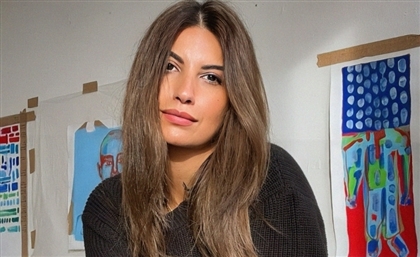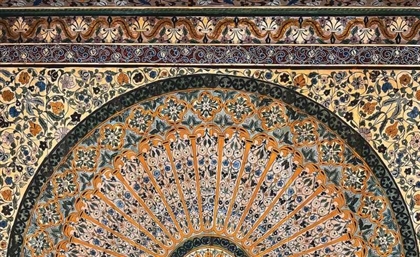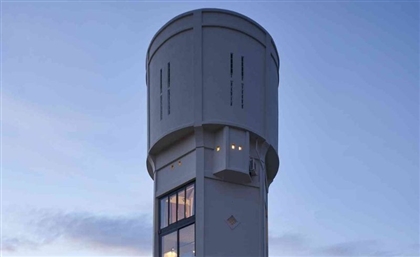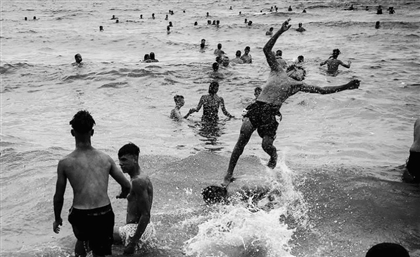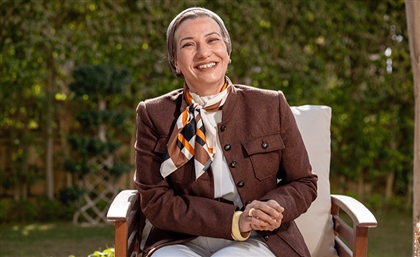Tracing ‘Saint’ Dalida’s Footsteps Throughout the MENA Region
A voice that travelled the world, Egyptian-born French-Italian icon Dalida was beloved by many, but adored by her Arab fans.
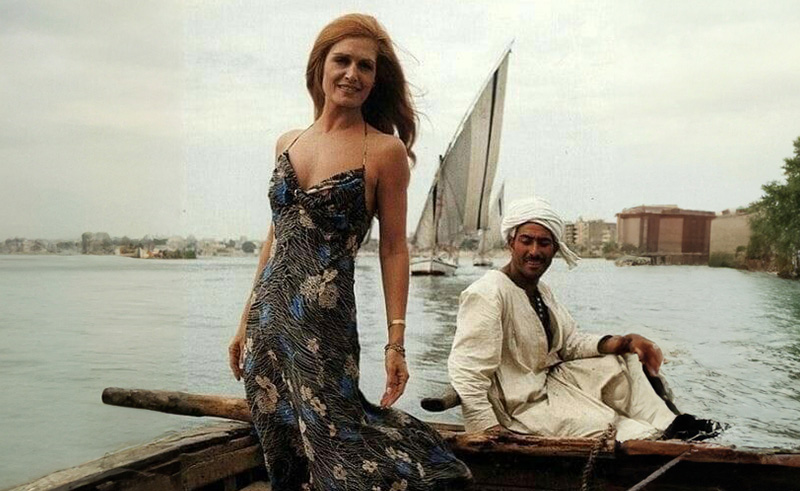
Photo: Dalida on a rowing boat in the Nile | Circa 1970s
“I found my love in Portofino, perché nei sogni credo ancor.” – I found my love in Portofino, because in dreams I still believe. So goes the very first line of the late icon Dalida’s hit song ‘I Found My Love in Portofino.’ Long before she became an international superstar, Dalida was first a dreamer, born in Cairo’s Shubra to an Italian violinist father and a seamstress mother.
Christened Yolanda Cristina Gigliotti in 1933, the girl whose star would one day shine as Dalida grew up entrenched within the multicultural milieu of 20th century Cairo. As the daughter of Pietro Gigliotti, a respected first violinist of the Cairo Opera House, Dalida’s earliest years were spent in the almost ethereal embrace of harmonies and tunes.
-5d4e720b-afaf-4208-b941-db35cf8ad3a4.jpg)
Photo: Dalida in Alexandria, Egypt | 1955
Early Beginnings and Rise to Stardom
Soaking up the multicultural mosaic of her surroundings, Dalida grew up speaking Italian, French, Arabic, and English. This linguistic prowess, combined with her heavenly voice and almost instinctual inclination for music, set the stage for her inevitable stardom and globetrotting adventures, a path on which she quickly found herself after winning the Miss Egypt title in 1954, and garnering the attention of French film director Marco de Gastyne, who immediately recognized Dalida’s potential.
-609512f9-f2f2-4f9e-a30e-55ccde105bc5.jpg)
Photo: Dalida with the Lebanese Militia in Beirut | Circa 1960s
It was De Gastyne who invited the then-rising star to Paris to act in his film “Le masque de Toutankhamon.” Ever the dreamer eager to spread her wings, Dalida accepted and thus began a new chapter in the city she would call home for the rest of her life. After early struggles to gain traction, Dalida’s breakout came with the to-this-day-referenced hit ‘Bambino’ in 1956. The song spent a historic 46 consecutive weeks in the top 10, a feat practically unheard of at the time, and established Dalida as a star across Europe. But, just across the Mediterranean, Dalida’s name was just beginning to etch itself in history.
Her immediate success in France with ‘Bambino’ and other early hits quickly spread across the sea, capturing the hearts of audiences in French-speaking North African and Arab countries such as Morocco, Algeria, Tunisia, and Lebanon. Dalida's melodies en français endeared her to these regions, where French culture and language held, and still hold, significant influence.
Becoming the MENA Region’s Own Dalida
It was her later Arabic recordings that truly stole the hearts of the Arab nation. Throughout the Middle East and North Africa, Dalida's recordings of iconic Arabic songs from the 1970s remain deeply cherished to this day. Perhaps none are more beloved than her breathtaking Egyptian household hit of ‘Helwa Ya Baladi.’ Wildly popular throughout the region were also ‘Salma ya Salama’, and ‘Ahsan Nas’, the latter truly being a love letter to her country of birth, though perhaps lesser known than its more famed sonic sisters.
-636445f8-a461-4ca5-b19b-a4d4ec2e14d2.jpg)
Photo: Dalida on stage at the Olympia, Paris | 1967
Sung in the language of their heritage, these tracks helped cement Dalida as not just a French pop star, but an artist who represented the cultures of the Maghreb and Middle East. Her concerts in Morocco, Algeria and Lebanon drew massive crowds of adoring fans who sang along to every word. Dalida successfully forged a deep bond with listeners across not only Europe but also the North African and Middle Eastern regions that surrounded her birthplace in Egypt.
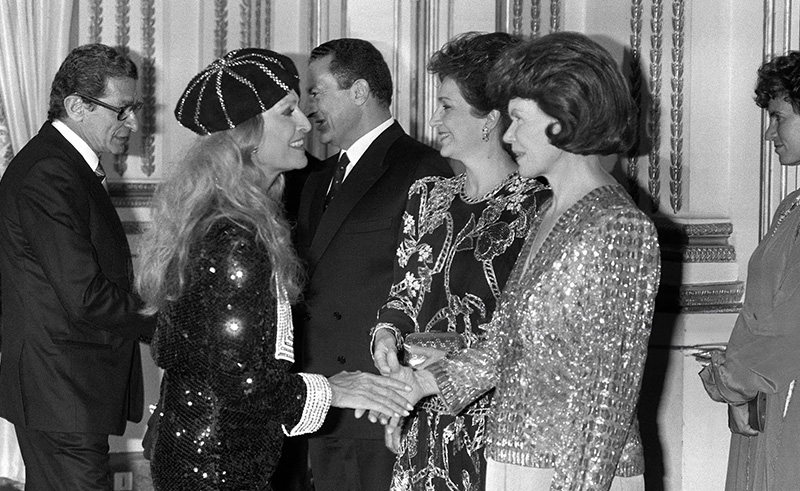
Photo: Dalida with the Mubaraks at the Elysee Palace in Paris | 1986
So, while Dalida may have called Paris home, and while she may have perhaps found her great love in the picturesque Portofino of song, the star certainly did not forget her birth land, nor the people who spoke her mother tongue of Arabic. Through her songs in over nine languages, she built cultural bridges that to this day still stand. Mind you, nothing brings a Frenchman and an Egyptian together quite like the passing mention of Dalida.
Tours across the Middle East in the 1970s saw crowds embracing Dalida as the top ambassador of multicultural pop. It was in this region that she felt most at ease, finding solace in the places that evoked a similar spirit to her Cairo of youth. Dalida’s presence was felt on stages from Morocco’s Casablanca, Algeria’s Sidi Bel Abbès and Tunisia’s Tunis to Egypt’s Cairo, Lebanon’s Beirut and Turkey’s Ankara.
-4ec07eb3-494b-45c1-aaf9-427048f93e14.jpg)
Photo: Salle El Atlas, Algiers
Appearances in the Arab World
Following her immense success in Europe, Dalida ventured on her first official trip into the Arab world with a performance in Algeria in 1958. She sang for French colonial troops stationed in Algiers, a debut that understandably placed her relationship with Algerians on rocky footing as their war for independence raged. Three years after Algeria gained freedom from France, Dalida returned in November and December of 1965 for concerts across the nation in Tlemcen, Sidi Bel Abbès, Oran, and Mostaganem, among other places. Following her tour in Algeria, Dalida took to Casablanca less than a year later in June 1966.
An archival poster of one of the concerts, posted by Arkansas-based anthropologist and Dalida fan Ted Swedenburg, shows Dalida’s concert at Algiers’s Le Majestic. Dalida would later return to Algeria in November of 1983, performing at the Salle El Atlas for the very last time.
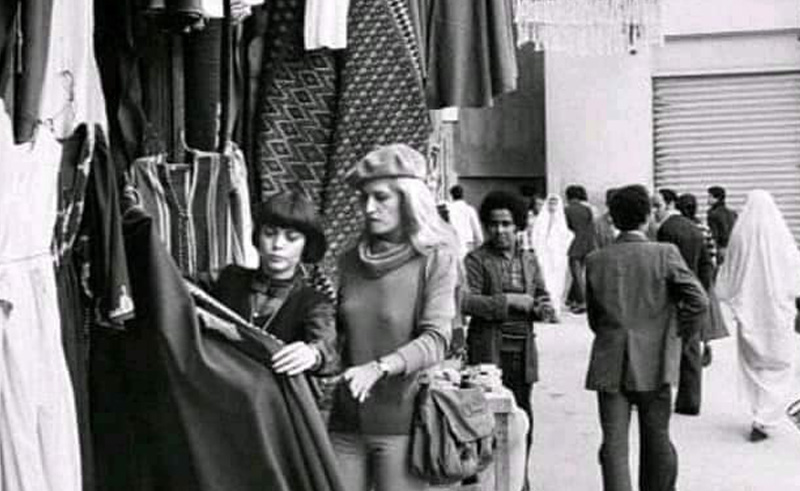
Photo: Dalida with Mireille Mathieu in Tunisia | 1975
In 1977, following the release of one of her most viral songs in the region, ‘Salma ya Salama’, Dalida began frequenting the Middle East. The late legend had a series of performances throughout Lebanon, with appearances in Beirut and Byblos, where the singer was often captured roaming the former’s streets or posing next to the ancient ruins of the latter.
It was also in Beirut that Dalida met one of the era’s most prominent artists, Fairuz – an event that produced one of the most referenced photographs in the Arab world, particularly in Lebanon.
In 1986, one year before her unfortunate passing, Dalida paid tribute to Lebanon in the best way she knew how – through song. In her nationally-acclaimed anthem ‘Lebnan’, Dalida sang of a reborn Lebanon, one that had overcome its dark days, paving the way for a brighter future.
Alongside French singer and personal friend Mireille Mathieu, Dalida visited Tunisia in 1975, where, following her performance, she took to the streets of the old Medina, perusing the old city’s souq stalls alongside Mathieu, with the day being immortalised in a series of black and white photographs.
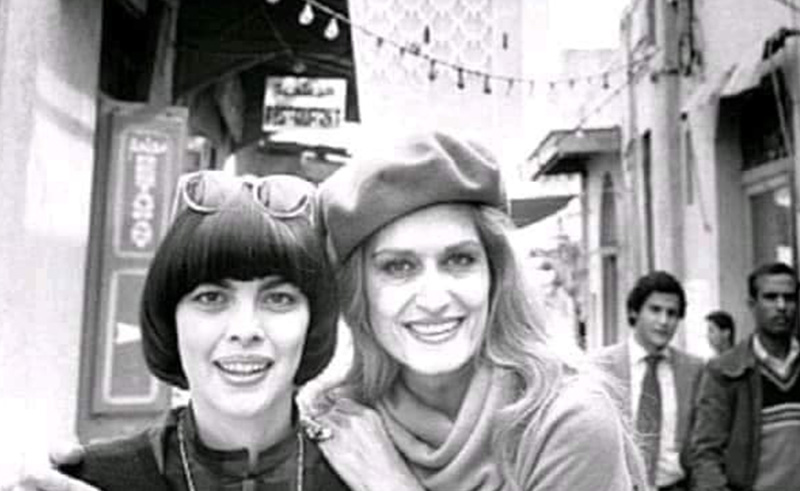
Photo: Dalida with Mireille Mathieu in Tunisia | 1975
A Private Escape
While Dalida’s years of success saw her perform on numerous occasions throughout the Middle East, it is no secret that the Egyptian-born artist truly found solace at her vacation house in Corsica, France. A gorgeous Mediterranean island and one of the 18 regions of France, Dalida’s Corsica home bore witness to her fondest memories. When she was not touring in the summer, Dalida could be found posing for the paparazzi.
In fact, Dalida’s vacation home in Corsica, now aptly named ‘Villa Dalida’, complete with views of the Gulf of Porto Vecchio, can be rented out today, maintaining its signature retro aesthetic from the 1970s.
Her Many Returns to her Egyptian Home
It is only just that a profile of Dalida, detailing her appearances in and impact on the Middle East, would conclude with an exploration of her many returns to her home country – Egypt.
It took Dalida five years to return to Egypt following her initial departure from Cairo to Paris. Having left an aspiring actress, Dalida returned as a French megastar, selling out the halls of Tanta’s Rivoli Cinema, and spreading her sensual melodies far and wide, with even the pyramids acting as witnesses on given occasions.
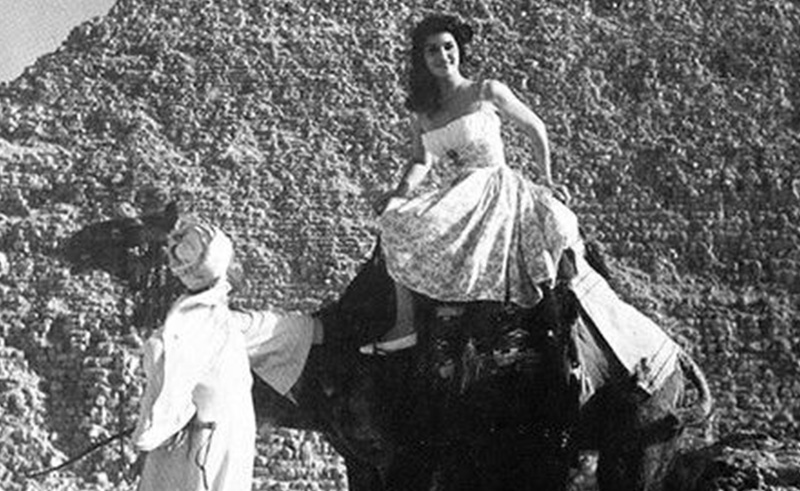
Photo: Dalida at the Pyramids | Circa 1950s
The years would then witness more of Dalida in Egypt. Cairo’s streets would often hear her laughter from balconies, as her family’s apartment in Shubra welcomed her once more. During this period, Alexandria’s Mediterranean greeted her, and even celebrities fawned over her, starstruck by her divine-like aura. Parties were often held in Dalida’s honour upon her visits, and thousands would gather to hear her sing.
While one cannot presume what went on inside Dalida’s mind, one can safely deduce that her love for Egypt was one that was genuine – a connection she held near and dear to her heart. There is a certain brightness to her gait that can be sensed upon seeing a picture of her in Egypt, one that carries an aura different from those captured in frames belonging to other borders.
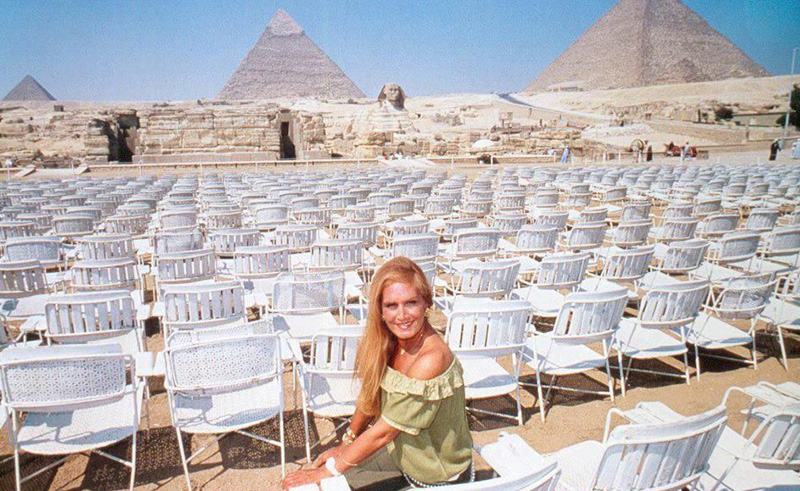
Photo: Dalida at the Pyramids | Circa 1970s
It is likely, for that reason, that following its release, Dalida’s set-list for any concert in the MENA region, particularly Egypt, was inaugurated with the heartbeat-esque percussions of ‘Salma ya Salama’, signalling a relief at return to what one may only assume she felt was one of her many homes. It is the very first song that permeated the air as Dalida took to the stage one last time in the country that witnessed her first breath, as she returned to perform in Cairo and star in Youssef Chahine’s 1986 film, ‘Al-yawm al-Sadis.’
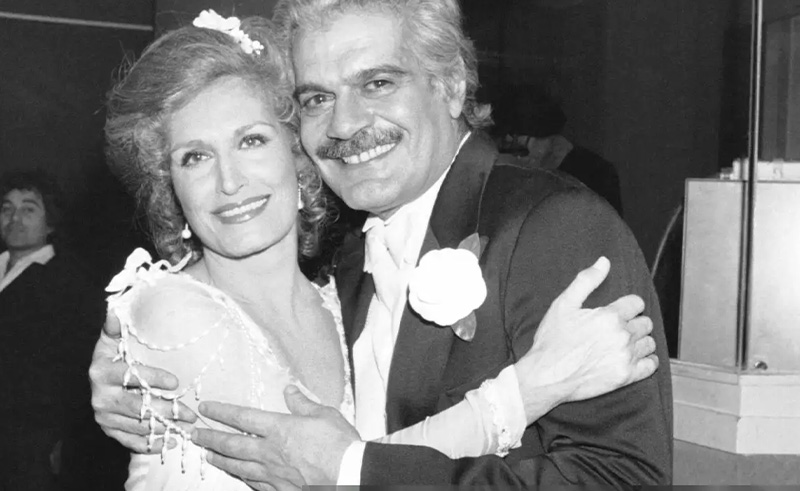
Photo: Dalida with Omar Sharif | 1981
Her final performance there in 1986 reinforced Dalida’s status – a woman of utmost grace and class, notorious for her habit of interrupting her own performances to ask the audience ‘mabsooteen?’ ‘Are you happy?’ – as an eternal piece of Egypt’s cultural soul.
However, her private pains eventually overwhelmed even Dalida’s bright spirit. On May 3rd 1987, she took her own life in Paris, leaving millions worldwide heartbroken at the loss of an icon who used her gift to heal divisions through art. To this day, Dalida’s legacy lives on as one of the first truly global superstars – at home equally in Paris, on the shores of Corsica, with the ghosts of her love in Portofino, and on a radio playing in the streets of her beloved Cairo.







